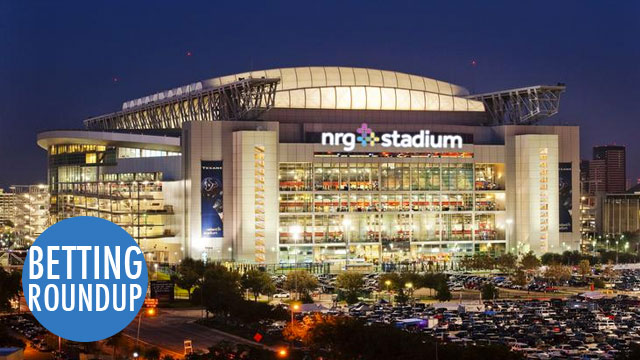Twice weekly, we’ll comb through as many articles, tweets and podcasts as we can find related to the world of sports betting and daily fantasy sports, and publish the good stuff here.
Stumble upon something you think we should include? Email info@bettingtalk.com.
* * *
The American Gaming Association estimates $4.7 billion will be gambled on Super Bowl 51 in the United States — 97 percent of it illegally.
The estimates are extrapolated primarily from the wagering on the Super Bowl in Nevada, which is tracked by the state’s gaming control board, and are difficult to verify, with so much of the betting taking place in an unregulated market.
PASPA restricts legal sports betting to a handful of states, with only Nevada allowed to offer wagering on single events. Last year, $132.54 million was bet on Super Bowl 50 at Nevada’s regulated sportsbooks. The rest was shipped to offshore sportsbooks and local bookmakers, who have moved away from the stereotypical phone rooms and primarily operate online now.
Two New Jersey lawmakers are using this opportunity to push for legalizing sports betting.
The lawmakers, as they did two years ago, offered different measures to achieve the goal that the state sought since its 2011 referendum.
LoBiondo (R-2nd Dist.) would give all states four years to decide whether they wanted to legalize sports betting, while Pallone (D-6th Dist.) simply would allow New Jersey to join Nevada, Delaware, Montana, and Oregon, which already allow such wagering.
“Sports betting is already happening across our state and across the country, but instead of being appropriately overseen and raising needed revenue for our casinos, racetracks, businesses, and the state, these bets are placed through illegal enterprises,” Pallone said. “It is time to bring this activity out of the shadows.”
A Washington Post article says President Donald Trump’s yet-to-be-appointed Solicitor General will have a say when it comes to overturning PASPA.
Last August, a federal appeals court in Philadelphia ruled in the sports leagues’ favor, and New Jersey appealed to the Supreme Court. Earlier this month, the Supreme Court did not agree to take the case, but instead of flatly denying New Jersey’s appeal, the Court asked the Solicitor General to file a brief expressing what the U.S. government thinks of the case.
“It’s not something that happens very often,” said Christopher Soriano, a gaming attorney from New Jersey who has closely followed the case. “For the court to call for the view of the Solicitor General, it means at least one of the justices is interested in hearing more information.”
The Solicitor General is the lawyer who represents the federal government in cases before the Supreme Court. The U.S. government is not a party to the New Jersey case, so the Supreme Court basically is asking the new Solicitor General to summarize what he or she makes of New Jersey’s case.
If the new Solicitor General filed a brief that states the challengers from New Jersey have raised legitimate complaints, America’s highest court probably will take up the case, Soriano said, setting the stage for the Supreme Court to rule on PASPA’s long-debated constitutionality. A ruling in favor of New Jersey would open the door for states across the country to legalize sports betting. Lawmakers in a handful of other states, including Pennsylvania and New York, have expressed interest in adding sports betting to their legal gambling offerings.
Nevada governor Brian Sandoval said he thinks legalizing sports betting across the country would not hurt his state.
Nevada has not filed a brief in the case, and Gov. Brian Sandoval said a ruling in favor of New Jersey would help in the fight to reduce illegal gaming and would do little to hurt the Silver State’s position as a global destination for gambling and entertainment.
“I think it will be helpful in terms of illegal gaming, because obviously to bet in Nevada you have to be in Nevada,” Sandoval told the Review-Journal.
“People are still going to come to Las Vegas and bet on the Super Bowl and make their sports bets,” Sandoval said. “You don’t come to Las Vegas just to sports-bet. You come to eat the food, stay in the hotels, see the shows, to have a great experience.
“I’ve always felt that if you expand sports betting, it really wouldn’t hurt our state.”
The Wall Street Journal recently published an article about entity betting.
Entity-wagering funds are tiny by Wall Street standards—the largest has just over $1 million under management. By comparison, Sunday’s Super Bowl between the New England Patriots and Atlanta Falcons alone is expected to generate more than $100 million in bets at Las Vegas sports books.
“While it is a good start, it has a ways to go,” says Dallas Mavericks owner Mark Cuban, long a proponent of sports betting as an alternative investment.
